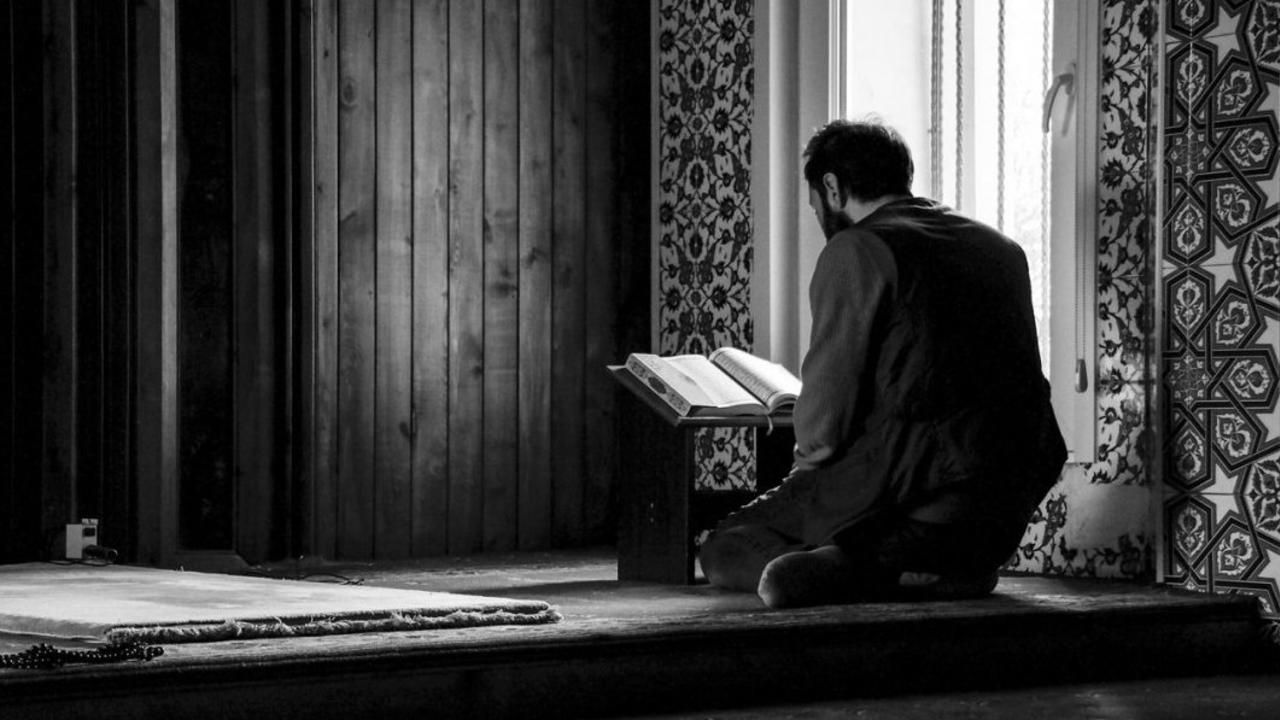Blog
Insights, Reflections & Case Studies
Accusing Muslims of Disbelief: A Dangerous Phenomenon

Over a decade ago I wrote an article aimed at educating the public on the whole topic of Takfir (declaring another Muslim to be a kafir i.e. a disbeliever) as I saw it as a dangerous practise within communities. It remains as dangerous as ever. Therefore, I am reproducing it here with a few minor tweaks in order for us to have a better understanding.
WHO ARE YOU CALLING A KAFIR?!
Takfir (declaring another Muslim to be a kafir i.e. a disbeliever) has become a dangerous phenomenon amongst Muslims. The term kafir is being thrown around loosely without due consideration of its repercussions.
A misapplication of takfir is causing many problems for Muslim communities around the globe, and contributing to disunity, infighting and condemnation. Some misguided people even use takfir to justify killing their fellow Muslims. Many Muslims are astounded when they hear that some Muslims are killing each other in places like Pakistan and Iraq. They question how a Muslim can do such an act....
Reflections on 2020: Looking on the Brighter Side of a Global Pandemic

2020 is almost over, and what a unique year it has been for all of us. As we look back at the year it is important to not fall into the trap of vilifying or disparaging the year. This is not the way of the believer and entails bad etiquette.
The nature of this world is that it’s a place of tests for the human being, Almighty God says:
وَلَنَبْلُوَنَّكُمْ بِشَيْءٍ مِّنَ الْخَوفْ وَالْجُوعِ وَنَقْصٍ مِّنَ الأَمَوَالِ وَالأنفُسِ وَالثَّمَرَاتِ وَبَشِّرِ الصَّابِرِينَ
And most certainly shall We try you by means of danger, and hunger, and loss of worldly goods, of lives and of [labour's] fruits. But give glad tidings unto those who are patient in adversity (2:155)
As difficult as this year was for us all, there was also great wisdom in it. Upon reflection, we’ll find many lessons Almighty God has been teaching us these past months. Some of these include:
- Appreciating our family and friends more.
- The planet got a chance to breathe. Sightings of wildlife increased worldwide and a re ...
Fasting the 6 Days of Shawwal: Virtues & Practical Advice
While the month of Ramadan may have come to an end, Allah continues to favour us and has granted us the opportunity to obtain even more rewards - equal to one year.
Shawwal is the month that follows Ramadan, and in one narration the Prophet (pbuh) has taught us that:
"Whoever fasts the month of Ramadan and then follows it with six days of fasting in the month of Shawwal, it will be as if he had fasted the year through." (Muslim)
How do these fasts equate to one year of fasting?
أن رسول الله صلى الله عليه وسلم قال: "من صام رمضان ثم أتبعه بست من شوال كان كصيام الدهر" (رواه مسلم)
“Fasting Ramadan is like fasting ten months, and fasting six days [of Shawwal] is like fasting two months. That is like fasting a full year.” [Ahmad & Nasa’i]
Is it narrated that good deeds are multiplied by at least 10. Therefore, fasting for 30 days in Ramadan is equal to 300 days in reward. Fasting 6 days in Shawwal equals to 60 days, and therefore a total of 360 days makes up for on...
Lessons We Can Learn from the Coronavirus Global Crisis

Within the last few weeks, the world has been experiencing an unprecedented event – a once in a lifetime pandemic that quite literally brought normal day-to-day life as we know it to a halt.
Since the coronavirus outbreak, we have been forced to step outside of our comfort zones and adapt to a reality that, for many people, is the cause of deep discomfort and distress. Life and the economy as we know it has come under great strain.
It is not unreasonable therefore to be experiencing feelings of anxiety, stress and even a lack of spirituality at a time like this. Questions have arisen about not only the virus itself, but what this situation also means on a deeper level.
For the believer, it is a time to reflect upon why this test has been placed upon us by Almighty God جل جلاله and more importantly, how we should respond. Below are some points to consider about the current global crisis.
1. We Are Not in Control, God Is.
God...
Why Isn’t Islamic Learning Effective as our Children Grow Up?

This past week my son has being singing the famous Tala‘ al-Badru ‘Alaynā nasheed (1). Naturally as a parent I am pleased he’s learnt it and runs around the house singing it, rather than singing something else. He was taught it during summer school (2) which he attends like many children on an annual basis. When picking up my kids I find parents having similar conversations with their children: “What did you learn today?”. Parents are pleased to see them learning Prophetic Duas, good morals, stories of Prophets and other excellent etiquettes. But despite all this learning, as children grow up and become teenagers, sadly much of what they were taught is forgotten. Why is this the case? I believe a key factor is that their learning is not a lived reality; it is theory but not practice. The reason why many of us don’t forget how to make wudu, is because it’s a lived reality i.e. we do it often enough not to forget.
Our children are learning great things at these schools, but often t
...How to Have a Productive Ramadan (Sample Daily Plan)

Undoubtedly the best way to get the most out of your Ramadan is to make a plan of worship.
If you’ve never made a Ramadan plan before it may be a little daunting, so below I have shared a sample plan that I made for a brother who had requested it from me. Hopefully this can help you if you’ve been meaning to make a plan but not quite got round to making one.
Feel free to increase or decrease to the following template according to your own circumstances. Remember the clock is ticking, this month will pass by and the doors of paradise* will close so make sure you make the most of it.
EXAMPLE PLAN:
- Complete the Quran once, so approximately one chapter or juz/para per day.
If one chapter is approximately 20 pages, the simplest way to achieve this would be to split it up throughout the day. For example, reciting 2 pages before and after each of the 5 prayers is equal to 20 pages. - Repeat لَا إِلٰهَ إِلَّا ٱلله – la ilaha illa allah x 12,000 times (approximately 400 a day).
- Repeat أستغ ...
Avoiding Divorce: Prevention is the Best Cure

Conversations with my fellow peers about the concerning rising divorce rate in the Muslim community have become all too common. It’s a source of real concern for the entire Muslim community and everyone agrees something needs to be done. The global Muslim divorce rate is 1 in 5 and in places such as North America it’s as high as 1 in 3.
Fellow scholars agree that pre-marriage preparation is key if we are serious about changing our current family breakdown situation.
Around 15 years ago I was studying in an Islamic college. We had students from all nationalities. Nearly all of us were unmarried, so when we learned some fellow students were about to wed, we were all excited. However, since they were from Malaysia they could not get married until after having completed a course. Not being in Malaysia wasn’t an excuse, and so they had to go to their embassy and complete the course. I learned that this was mandatory for everyone, even if they were a scholar! The amazing thing was since ...
Finding Mr. / Mrs. ‘Right’ – on Awaz FM Glasgow
Alas, February 14th is upon us once again and for many there will be the smell of fresh roses and chocolates filling the air.
While the concept of a single day dedicated to love and romance seems nice to some, it’s more befitting for us to discuss love and relationships at a deeper level, beyond the celebrations of a single day.
Recently I was invited on to Awaz FM – a radio station in Glasgow, Scotland – to do just that. While on the show, the host (Amjid Bashir) asked me a range of questions regarding love, marriage, and finding the right partner.
The full show can be viewed above.
Some of the discussion points include:
- A bit about myself and my work in the marriage and family law field
- Enhancing parental involvement and guidance in the marriage process
- Why are people struggling to find a good match?
- Delaying marriage
- Does the ‘perfect’ person exist?
- And a variety of other marriage-related issues
To receive more of my insights on marriage and relationships, be sure to ...
Delaying Marriage: Does it Really Matter? (Surprising Answer)

Delaying marriage into the late 20’s and early 30’s has become a growing trend. Many young people or their parents will only actively start looking for potential spouses after formal education or a few years of being in the workplace. Attendance at marriage events or a cursory glance at matrimonial sites shows the average age of people looking has increased.
There are a wide variety of reasons as to why some Muslims do not marry until much later on in life. From these, the most common include being occupied with studies, parental obstacles, a feeling of not being “ready” or mature enough (whether that’s held by the person or their parents) or financial difficulties. In some cases, individuals do make a great effort to get married but just can’t seem to find “the one” and for others marriage just isn’t an attractive concept at all.
But is delaying marriage an issue and something to be concerned about? Is there really a “right time” or does it depend entirely on each individual? Does e...
The Dangers of Making Marriage Harder for Our Youth

Many years ago, I read a short book by a scholar [1] called “Have Mercy on Our Youth”. The scholar was calling for society to make marriage easier for young people, citing how hard it had become to get married at a time when the doors to unlawful behaviour like fornication had become so open and multifold. Written many years ago, I sometimes wonder what he would write if he were alive today.
Marriage is such a massive part of our lives and weddings are big social occasions for families and friends.The Prophet ﷺ said:
“Marriage is part of my way (sunnah), and whoever does not follow my way (sunnah) has nothing to do with me.” (Ibn Majah)
Marriage at the time of the Prophet ﷺ was simple and made easy. The Prophet ﷺ called for dowry (mahr) to be light [2] and pushed young people to marry.
“O young men, whoever among you can afford to get married, let him do so, and whoever cannot afford it, let him fast, for that will be a shield for him.” (Bukhari & Muslim)
“Can af...

